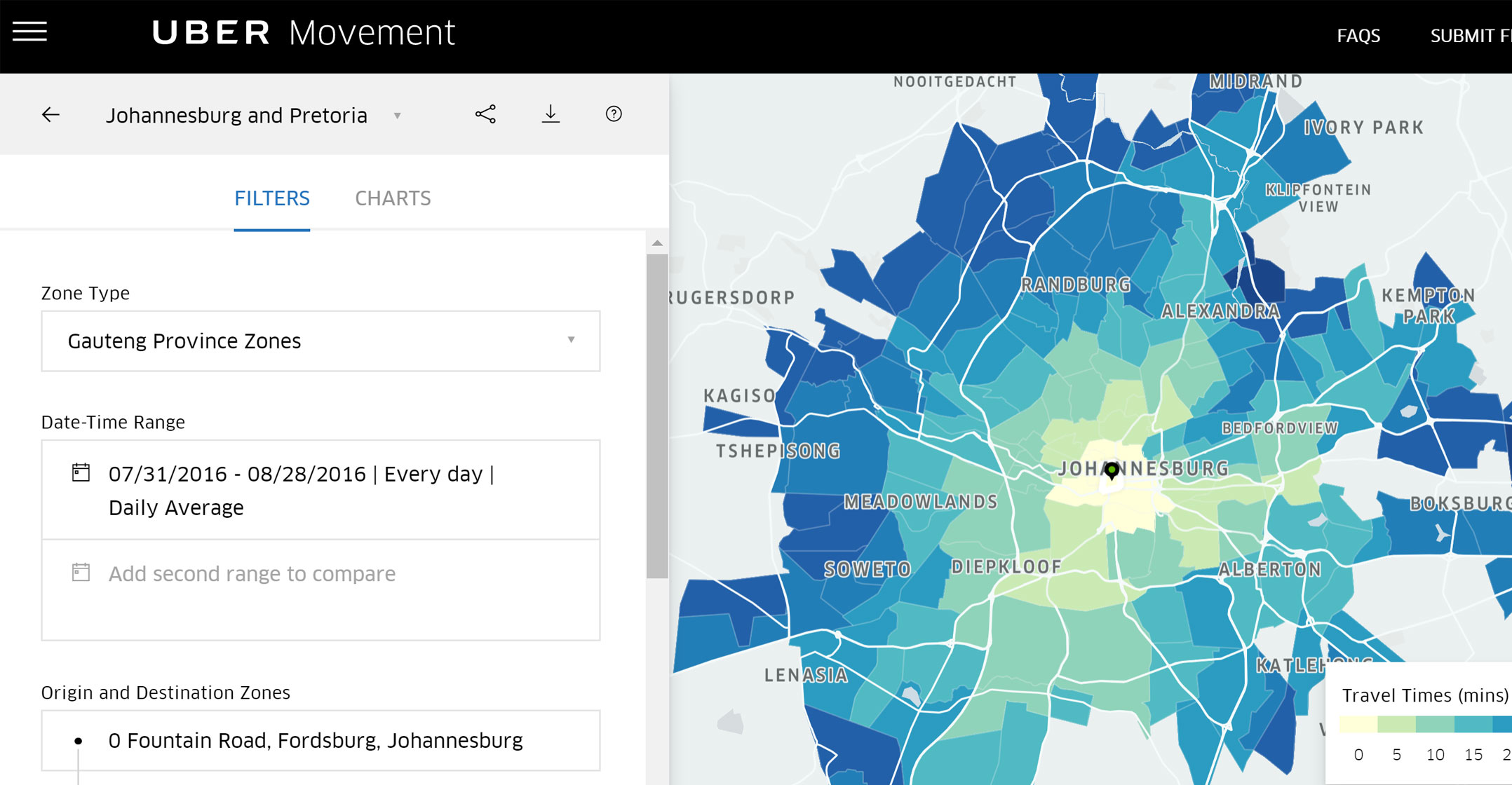
Gauteng has become the first region in Africa to become part of Uber Movement, Uber’s free website that provides the public and urban planners with anonymised data about traffic flows.
The website provides detailed information about travel times across cities where Uber Movement has been launched. The South African launch provides data for both Johannesburg, South Africa’s biggest city, and Pretoria to its north.
Users can drill down into a range of information about traffic flows based on the day and time of the week. Uber hopes the traffic pattern data, collected over years from GPS-connected Uber vehicles, will be used by city planners to improve transportation networks.
The data on the website is free to the public, provided they log on using their Uber credentials.
“Uber trips occur all over cities, so by analysing a lot of trips over time, we can reliably estimate how long it takes to get from one area to another,” the company said in a statement when it first announced Uber Movement in January 2017.
“Since Uber is available 24/7, we can compare travel conditions across different times of day, days of the week, or months of the year — and how travel times are impacted by big events, road closures or other things happening in a city.”
Uber sub-Saharan Africa GM Alon Lits said the Uber Movement website will be improved constantly as more data is collected from driver vehicles.
Data sets
“It’s crucial we make use of technology and data to improve the way our cities move and the way we plan our cities into the future. If we don’t, we won’t move quickly enough to address the needs of urbanisation,” Lits said.
Yolisa Kani, country head of public policy at Uber, said the company hopes to bring the Uber Movement data to all South African cities in which the company operates. “We hope Cape Town is the next city, based on the number of trips there,” she said, but added that many other cities worldwide are next in line for the roll-out.
Uber data sets show how and where people use the taxi-hailing app in Johannesburg (including Pretoria), Cape Town, Durban and Port Elizabeth.
Anonymised data from February 2016 shows that Johannesburg, perhaps unsurprisingly, is the biggest Uber city in South Africa, with 174 000 active riders at the time. The busiest time for the company is around 6pm on Friday evenings, though Saturday evenings are also a peak time.
Cape Town had 112 000 active riders, with Friday evenings also the busiest time. Durban, which had 31 000 active riders, had equal peaks on Friday and Saturday evenings. Sundays are typically the quietest days across all South African cities. — © 2017 NewsCentral Media

